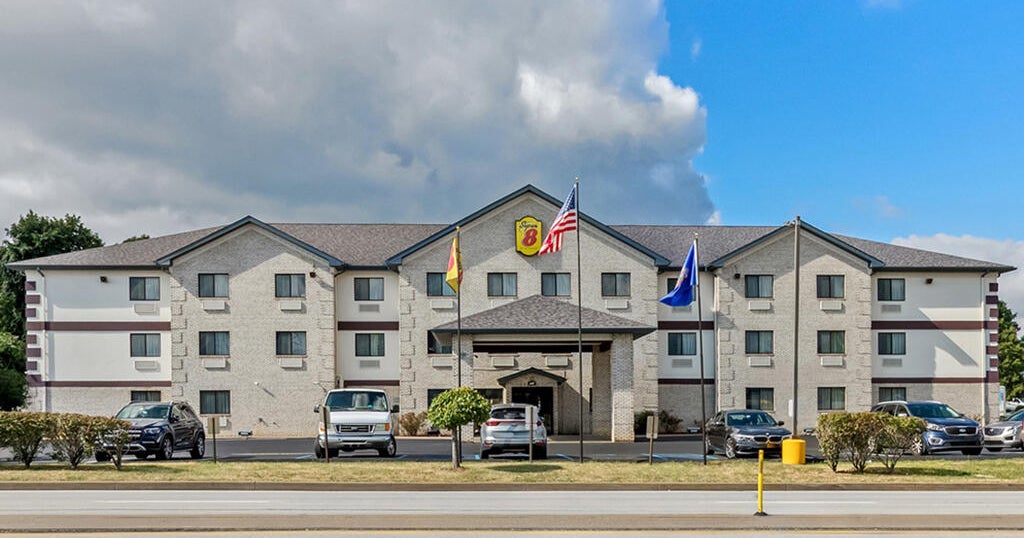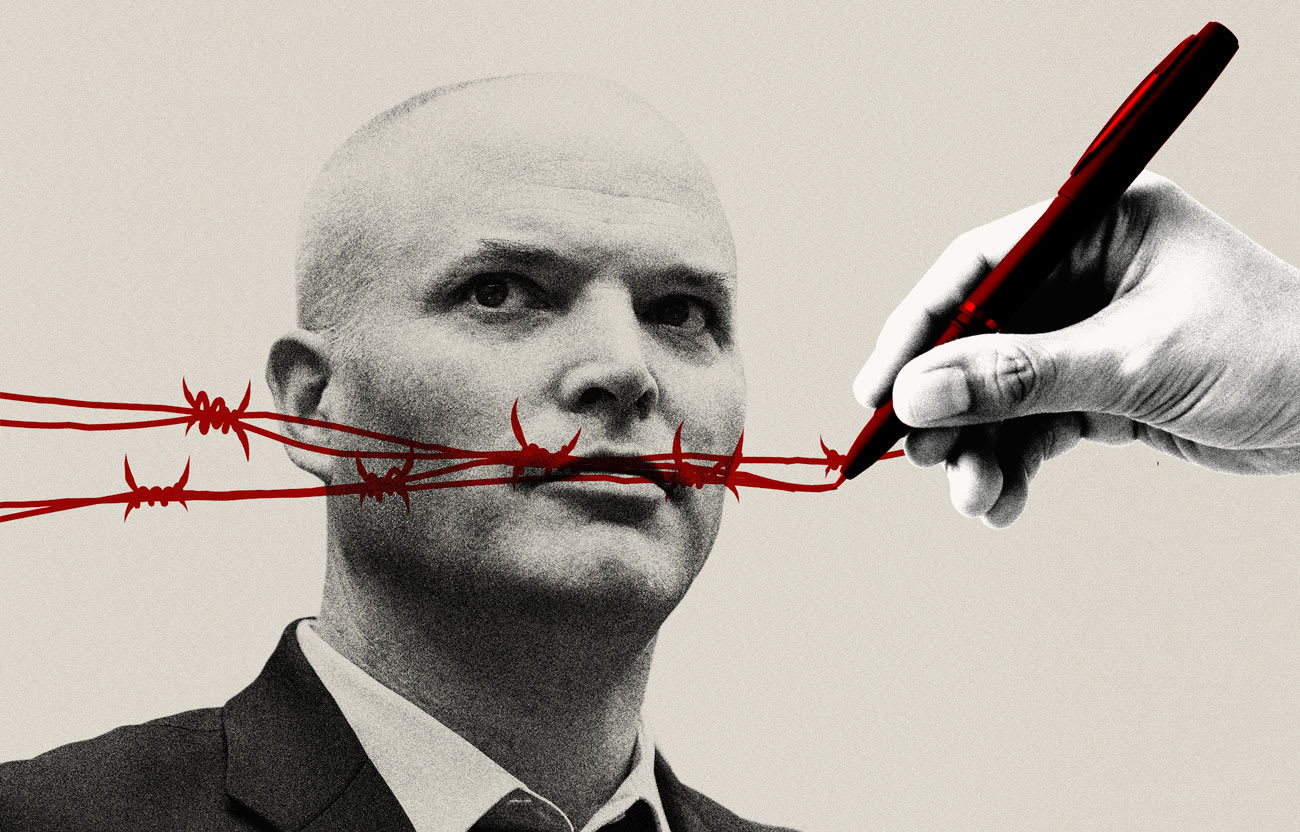Policing social media to combat online radicalization
Social media platform Gab.com, where accused Pittsburgh synagogue gunman Robert Bowers traded in anti-Semitic comments and conspiracy theories, was taken offline this weekend. Tech companies pulled their support for the site following Saturday's shooting in which 11 people were killed. In a statement, Gab decried the move, acknowledging that "Social media often brings out the best and the worst of humanity. … Criminals and criminal behavior exist on every social media platform."
Gab, which promotes itself as a haven for free speech, is particularly popular among those with extremist views. CBS News senior national security analyst Fran Townsend, who was a homeland security and counterterrorism adviser for President George W. Bush, described sites like Gab as "a cesspool of right-wing, alt-right nationalists."
O'Donnell asked Townsend, "You were in the White House after 9/11. There was a discussion at the highest levels of government about how people are being radicalized in terms of terrorism. Now we have homegrown extremists who are being radicalized in a different sort of way. What can the government do about that?"
"We've struggled with this, because we cherish our right to free speech, but we've tackled this online with the social media sites in the context of Islamic terrorism," Townsend said. "And so it is possible. They're now taking down Gab. Why didn't they do that earlier?"
Co-host Norah O'Donnell noted a connection between lies and hate speech online and the actions of the Pittsburgh shooter. "He believed, there had been a conspiracy theory that George Soros, who is a Hungarian [born] billionaire of Jewish faith, was funding the migrant caravan that was on the front page of the newspapers, that there were essentially Jews funding a group of invaders. Then, the Pittsburgh shooter posted on Gab, 'I can't sit by and watch my people get slaughtered. Screw your optics, I'm going in.' It's all there – radicalized online by a conspiracy [theory]."
"I feel like it's even worse," said Nicholas Thompson, a CBS News contributor and editor-in-chief-of Wired, "because not only does he get radicalized, he gets an affirmation. He posts 'I'm going in' because he wants people to like that. There is something wrong with that platform if that happens."
"Gab very much was founded on principle of free speech absolutism; if it's legal to say something, they will allow it on the platform," Thompson said. "That is a very different philosophy from most other social media platforms right now," which have policies against abusive and threatening posts.
"All of the infrastructure underneath Gab, they all said yesterday, 'We're done, we're not going to protect you.' That's why Gab is knocked offline," Thompson said. "In one way it's strange that hosting providers get to make the decision about a conversation that people talk. Should they have that power over free speech? If you think of it as a free speech question, it' seems strange. But if you think about the question, 'Did Gab radicalize this person? Does Gab bear some culpability in turning him into the person that did what he did?' Then you reach a very different conclusion."
On Monday, Gab — whose CEO claims it is visited by nine million people every month — posted on Twitter that it had voluntarily taken itself offline "on purpose," because "we knew the media would take the bait and have stories on it for this morning. They aren't very bright people."
They also posted, "Social media posts do not kill people. Social media posts help law enforcement create cases against people who do though."
Townsend noted that there are legal constraints on how the FBI and law enforcement can deal with social media platforms.
"One of the things that people don't appreciate is the FBI doesn't monitor social media sites. They're restricted from doing that under what's called the Attorney General Guidelines. So, I think it's time that we've got to look at that. If people are making these statements in public, it's sort of the town crier in the local square – why can't the FBI look at it? I understand the civil rights and free speech concerns, but I think it's time we have to deal with the problem that's in front of us," she said.
The Attorney General Guidelines, devised in the 1970s, prohibited the FBI from investigating speech activities when there was no call for violence, or from monitoring certain political views; only indications of criminal activity could prompt an FBI investigation.
The guidelines have been amended over the years. Today, FBI agents are prohibited from proactively monitoring websites without a suspicion of criminal activity, though they may use public databases and websites in search of evidence of criminal violations (such as terrorism or child pornography) and potential threats to national security.
In a statement an FBI spokesperson told CBS News that the Bureau "only investigates matters where there is a potential threat to national security or a possible violation of federal law. In such instances, we use all our mandated authorities in conducting a thorough investigation."
Co-host John Dickerson noted that conspiracy theories that might otherwise be relegated to a "dark place" are now out in the open, where they may be echoed by others, even politicians speaking from podiums or online.
"What have [politicians] done to sort of look at what's causing the problem?" Townsend said. "Why aren't we looking at the assault weapons ban? Why aren't we looking at who gets access to purchasing weapons? This man had 21 guns, and he's posting this sort of thing online. Why isn't it part of the screening process [for purchasing a firearm] to look at their social media sites? So, I'm a little tired of the politicians' sort of messages of condolence when's they don't do anything."
Thompson also said that it is a challenge for social media companies to identify legally what is extremism. "It's hard to identify what exactly is hate speech," he said. "Words are very complicated in different contexts. And in the particular case of Bowers, yes, it's very easy to identify what he was doing. He should have been found, it should have been taken down. But as a general principle, it's very difficult to identify what is hate speech and what is not hate speech and to set firm policies on that.
"Hate speech is complicated because you look for specific words and you look for the context in which those words were said. So, words that can be attacking one group when said by a member of that group can actually be affirmative. So it's very hard to identify what is an actual hate statement, what is a lyric, what is something that can be positive. Of the technical problems that the social media companies have, [identifying hate speech] is the hardest. In a case like Bowers, take that guy offline, and if his platform is defending him, you can see why they want to take the whole platform offline."





